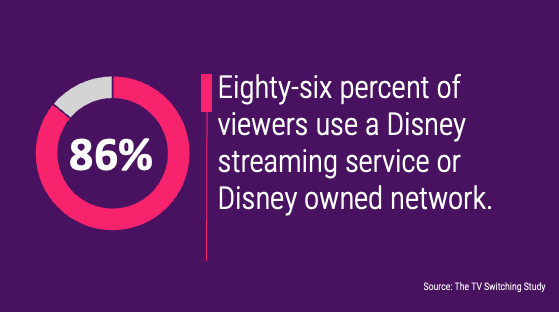
Disney’s future faces numerous challenges.
Over the past few weeks, Disney has acted more as a fishbowl than a mouse house in several critical issues seen as inflection points for the future of television. These include a precarious 10-day standoff over carriage fees with Charter, a looming buyout of Comcast's stake in Hulu, the consideration of selling off parts or all of ABC, and the future of a standalone ESPN streamer. How Disney navigates these challenges may offer a glimpse into the future of home entertainment.
In late August, negotiations between Disney and Charter over carriage fees fell apart; the second of three such corporate disputes this summer. Disney ended up pulling 27 networks from Charter's Spectrum cable offering, impacting 14.7 million cable subscribers. After a tense ten-day impasse (which saw Disney driving Spectrum customers to Hulu + Live TV, even offering a sizable discount), a new deal was hammered out which may serve as a template for other media companies. The major components of the deal include 19 of the 27 networks returning to Spectrum, and a wholesale deal that will include the ad-supported Disney+ Basic, ESPN+, and, when it is launched, the ESPN streaming app, at no added cost to the Spectrum consumer. The wholesale deal involving streaming services is the first of its kind, and a potential inflection point for how cable companies and media companies can work to better navigate cable deals during the evolution from linear TV to streaming.
Disney also recently accelerated a negotiation framework with Comcast, which co-owns Hulu with a 33% stake. Disney had long downplayed the buyout but has also admitted to developing a unified Hulu and Disney+ experience. The buyout deal now seems inevitable, but valuation of the Hulu service will be an interesting process. Each company will hire an investment bank, and if the two valuations are more than 10% apart, a third investment bank will be brought in, with the average of the two closest valuations to set the purchase price. Comcast obviously wants the largest possible price, while, naturally, Disney wants the lowest. Talks begin on September 30th, and the minimum price was set in the initial terms of the deal five years ago at $27.5B.
Shortly after the Hulu buyout timeline was accelerated, more news about selling off legacy media assets was making waves. Over the past few months, Disney CEO Bob Iger stated that Disney may not need to stay in the linear TV business, and that it may be time to focus on more profitable endeavors. Late last week, Nexstar, America's largest television station owner, was in talks to acquire ABC and its affiliates. Separately, media mogul Byron Allen had offered as much as $10B for ABC's national network, as well as FX, National Geographic, and smaller networks. It remains to be seen if Disney will finally sell these media assets, to whom, and for how much.
And finally, when and how ESPN becomes a standalone streaming service, what terms and conditions are baked into the final product, and what sports content will be seen on the service are all still a mystery. However, the Charter carriage deal specifies access to the direct-to-consumer ESPN product, and talks have been swirling for months about how Disney can develop ESPN and who they would need to partner with. One of the stronger rumors involves talks with Amazon, which could either partner with Disney for help with distribution, or as a minority stakeholder, or both. So far, neither company has offered details about the talks.
Overall, Disney faces many challenging situations, each with potential long-term impacts to both the company itself, as well as the entire industry. How each piece of the puzzle is put together could serve as the industry standard for other companies moving forward.
The Circana Take:
- The Disney-Charter carriage deal seems like a win for each company as well as consumers and can serve as a playbook for other carriage disputes involving linear and streaming properties.
- The Hulu buyout is a balancing act between developing value in the service, while downplaying that value in terms of pricing the buyout. The sooner the buyout happens, the less it will likely cost, and, in turn, the faster Disney can work to develop the service in earnest.